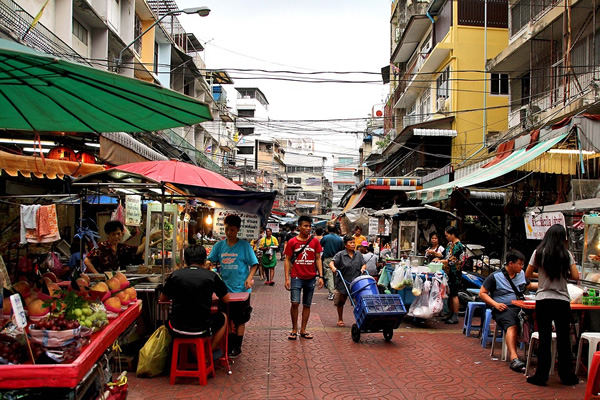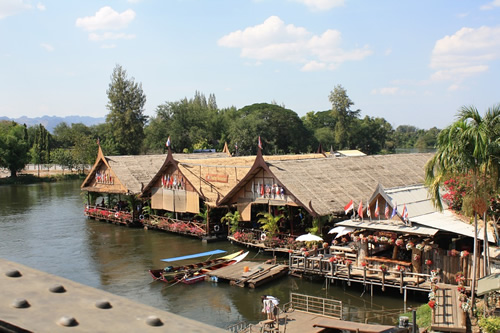Teaching English in Thailand Program
Classes Ease Cultural Transition
by Seth Leighton
 |
| A market in Bangkok. |
For those looking to live and work in a foreign country, teaching English is the most common route. At the very least, it is a great way to fund travel and integrate oneself into a different culture. In many countries, teachers are respected to the point of veneration. As a result of post-graduation angst and using the time-tested medium of a friend-of-a-friend, I settled on an English-teaching program in Thailand.
The program helped me prepare for life in another culture, provided me with comprehensive insurance, and promised continued support while I was in-country. Most importantly, the program guaranteed me a job, provided I finished my teacher-training course in the beachside fishing town of Ban Phe. This month-long course was run by TEFL International, whose founders have more than 20 years’ experience training teachers of English.
My Classmates
In my class there was an aging hippie couple from Canada who thought that English could only be taught through song; a mad Australian lawyer and a recovering drug addict, who kept us in stitches every day; a couple of Irish lads who had far greater interest in the nighttime karaoke bar girls than in teaching and dropped out about halfway through the course; an upper-class Brit who had been teaching in Cambodia and allowed himself to go slightly “dotty” in a Pythonesque way; and a few early 20s Americans like me looking to do something worthwhile with our lives. It was a wild and fun group; we grew quite close over the month and more and more eager to unleash our craft on the unsuspecting student population of Thailand.
Learning to Enjoy Teaching English
Sometime during the course I discovered that I truly enjoyed teaching English, and I found the methodology taught by TEFL International to be valid and full of room for improvisation and creativity. While it was possible — and a bit cheaper — to enroll in the TEFL course directly, I had the advantage upon graduation of job placement assistance. Within a week I had three interviews set up for me and had settled on a job at Klaeng “Wittaysathaworn” school.
My classes ranged in size from 20 to over 50, and from eager, industrious young learners to bored, counting-the-ceiling-tiles 18-year-olds. My training from TEFL International, helped me keep my head above water.
 |
| A cafe and restaurant in Thailand. |
I take a degree of pride in my students’ gradual improvement, and I am continually amazed at the warmth of the reception from the community as a whole. In particular, I feel fortunate for my immediate and unquestioned acceptance into a Thai host family.
A Memorable Homestay in Thailand
My school did not pay much, giving me 20,000 baht a month in salary. Supplemented with daily private lessons included, this rises to around $800 a month, still far below what Bangkok Language School pays. As a public school, Klaeng “Wittaysathaworn” simply doesn’t have the resources to compete with the private schools, so living with a host family is a way to create a better overall compensation package. My host family is one of the best parts of my experience. I have learned to both speak and read Thai passably well, and I have gained a far better understanding of Thai people and their culture than I would have on my own.
This envelopment in and discovery of a new culture, of course, is one of the primary reasons for seeking a career as an English teacher to begin with. Utilizing programs like TEFL International can ease the transition into a foreign culture and give you the tools necessary to be an effective teacher.
For More Info
TEFL International offers a variety of teacher-training programs in countries around the world. Internationally
recognized and accredited degrees.
|
Seth Leighton hails from a small town on the coast of Maine. After graduating from Harvard Univ., he moved to Thailand.
|
